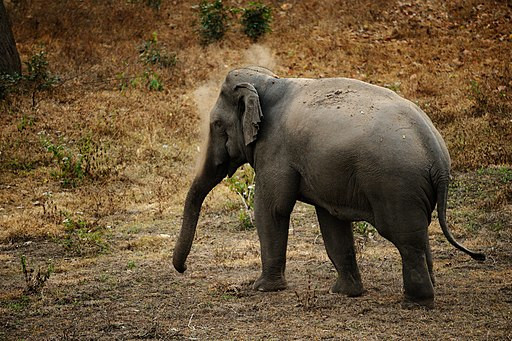Not really evolution?

When is evolution not evolution? When it's described by creationist/ID sources and is obviously change effected by selection. Case in point: any form of selection resulting from human activity. On January 27, 2022 the ever-astonishing Denyse O’Leary (“News” at the anti-evolution website Uncommon Descent) made a post in which she linked to an article on BBC Future by David Farrier. He starts out by saying that
Humans have shaped the bodies of other creatures at least since dogs were domesticated around 30,000 years ago. But the combination of industrialised farming, introduced species, urbanisation, pollution, and climate change are creating unprecedented selective pressures. We have become the world's greatest evolutionary force.
Farrier’s post, which you will find here gives numerous examples of ways humans are accidentally, or deliberately, influencing evolution.
The statement looks straightforward, but News will have none of it. Her response:
In a human-dominated world, things happen faster, for better or worse. Should we still call it “evolution” if we did it?
Obviously, her answer is no, and the UD commenters all applaud this. But they’re all wrong.
In The Origin of Species Darwin started out, in the first chapter, by reviewing variation of animals and plants under domestication, and attributes many of the changes from their wild ancestors to conscious or unconscious artificial selection. He regarded these processes as a close parallel to natural selection, a good way to introduce the concept to readers.
Creationists have a way of totally dismissing the analogy. Why, it's intelligent design by humans, they cry. How can anyone think that it in any way the same as natural selection?
Well, we can. When we set out to breed cows for, say, increased butterfat content of their milk, the one thing that artificial selection does not do is start with a detailed scheme of the genes that influence butterfat content, and then engineer each one to increase that trait. Instead we breed from the cattle that have highest milk butterfat content, or their immediate relatives. Farmers and herders have been doing that for thousands of years. They don’t know what genes are involved, and how they influence the trait.
The situation is the same for natural selection. Certain phenotypes have higher fitness than others, and that itself leads to the alleles they contain being better represented in the next generation. Neither wolves preying on deer, nor farmers trying to get more butterfat from their cows, carry around with them a detailed genetic plan.
Darwin's analogy is a powerful and convincing one. All that creationists can do is to flatly declare that the analogy is false. There's more to say, but I'll leave that to the comment section, and mostly to our commenters.
